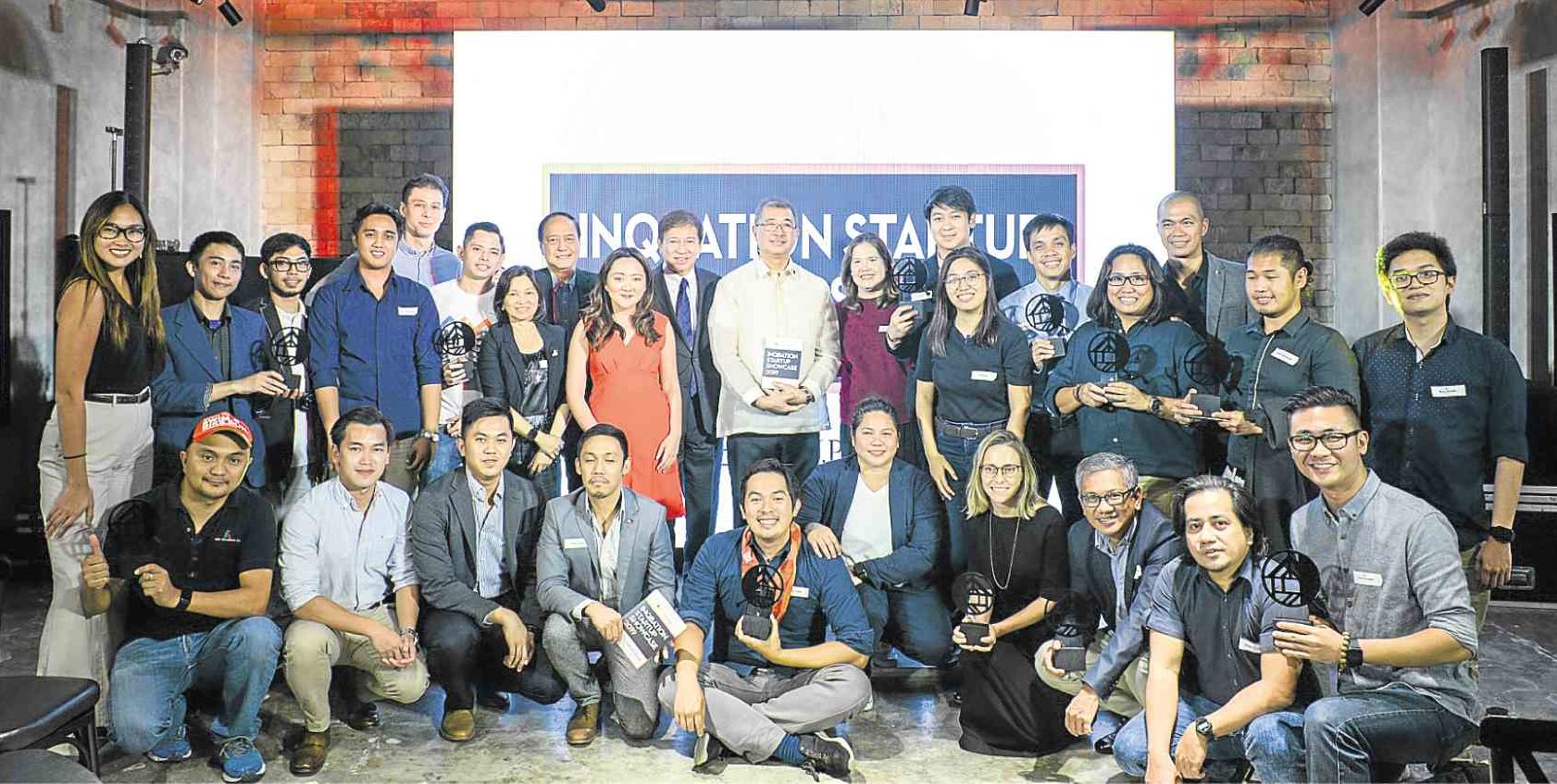
Science and Technology Secretary Fortunato de la Peña (center) at the recent InQbation Startup Showcase, together with the QBO team. —CONTRIBUTED PHOTOS
If the Philippines wants its homegrown tech startups to thrive, consistent support for this business community in the next three to five years is critical.
That’s the assessment of Katrina Chan, director of tech startup incubator QBO (taken from the word “kubo,” which is Filipino for hut) Innovation Hub, a public-private collaboration among business incubator Ideaspace, J.P. Morgan, and the Department of Science and Technology and the Department of Trade and Industry (DTI).
“Continuous support is needed so we can see our tech startups succeed here in the country, and not be overtaken by others in the region,” she says.
Since its inception three years ago, QBO has been able to support over 300 startups, says Chan. That support involves providing coworking spaces, mentorship, specialized workshops and connection to a network of fellow entrepreneurs and potential investors.
“We’re forever growing our community—or ‘Q-mmunity,’” Chan says.“That’s always our call to action to startups: Please sign up and join us.”
Just recently, QBO held its InQbation Startup Showcase, where 15 of their best startups pitched their business platforms to potential investors. The event also served as a recognition of sorts of the tech entrepreneurs’ achievements under QBO.
These tech startups include: Investagrams, a website and app that provides everything one needs to understand the stock market—educational materials, analytic tools, charts, screeners, virtual trading; AdMov, a company that makes use of facial detection/recognition and artificial intelligence for marketing and advertising; MAD (Make a Difference for Social Tourism Inc.) Travel, a social tourism company that creates alternative travel experiences aimed at helping small communities and protecting the environment;
Container Living, a company that makes use of discarded shipping containers in residential and commercial developments; Cropital, a crowdfunding platform that connects funders directly to smallholder farmers; Exora Technologies Inc., an end-to-end energy solutions company that cuts electricity costs through its proprietary specialized energy procurement platform and data-driven analysis; LearnTalk, an education technology company that provides online English lessons to individuals, corporations, institutions and language schools around the world;
Lex Meet!, a legal tech company that provides an online legal consultation platform and a marketplace of legal-related services and products; OneWatt, a device that helps industrial users prevent unplanned downtimes, minimize revenue losses and increase the productivity of maintenance work; Payo, a “last mile management” service that allows clients to have full control over all the aspects of their online businesses; Pushkart.ph, an on-demand online grocery service;
Senti, a pioneering local AI company; Streetby, an online lifestyle marketplace platform; and Washub, an on-demand laundry service that offers same-day pickup and delivery.
Chan especially mentions Kumu, a livestream, social commerce and gaming app targeted toward millennials and Gen Zs. Its livestream shows allow users to win cash prizes, a factor that made it extremely popular in a short time. Since its inception last year, Kumu has been able to register one million users on its platform; it is also the only Filipino-developed app that made it to Google Play Store’s Top 10.
QBO and the DTI have also taken it upon themselves to do a road map of the country’s startup ecosystem to determine which areas are the most conducive for tech startups. Aside from Metro Manila and Cebu, which were initially mapped in 2016, Legazpi, Bohol and Naga were added to the 2019 list.
“Aside from assessing the health of startup communities in these cities, we also put together a set of recommendations after each mapping session to help them move to the next stage,” QBO president Rene Meily says. “We’ve seen remarkable changes from 2016 to 2019, and ultimately, our goal is to promote and encourage collaboration to address the pain points experienced by startup founders and identify initiatives that will help them grow.”


